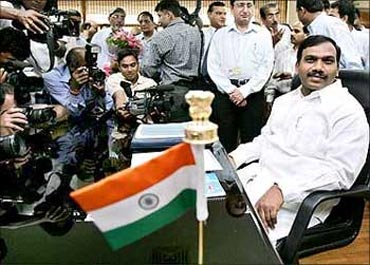The timing could not have been more perfect. A new report by Global Financial Integrity about Illicit Financial Flows from India comes as the perfect topping on the 2G spectrum scam, the Adarsh Housing Scam and the Commonwealth Games. According to the report, India lost approximately $213 billion in illicit financial flows from the country between 1948 and 2008. “These illicit financial flows were generally the product of: corruption, bribery and kickbacks, criminal activities, and efforts to shelter wealth from a country’s tax authorities.” The GFI report has put into words and quantified what everyone in India knew about.
 Indians have long known about hiding away money from the Income Tax (IT) Department, and there are enough jokes and fantasies about the Swizz Banks. It is not just corporations and political leaders who concern themselves with it, every Indian thinks about tax evasion. Whether they act upon it is a separate issue. Manmohan Singh opened up the economy in 1991, but it did not end the corruption of the License Raj; it simply opened up more avenues for corruption. The GFI report makes two important points: a) the flow increased massively in the era of economic liberalization and reforms starting with 1991, and b) “High net-worth individuals and private companies were found to be the primary drivers of illicit flows out of India’s private sector.” These pointers are sure to be taken up vociferously by critics of liberalization.
Indians have long known about hiding away money from the Income Tax (IT) Department, and there are enough jokes and fantasies about the Swizz Banks. It is not just corporations and political leaders who concern themselves with it, every Indian thinks about tax evasion. Whether they act upon it is a separate issue. Manmohan Singh opened up the economy in 1991, but it did not end the corruption of the License Raj; it simply opened up more avenues for corruption. The GFI report makes two important points: a) the flow increased massively in the era of economic liberalization and reforms starting with 1991, and b) “High net-worth individuals and private companies were found to be the primary drivers of illicit flows out of India’s private sector.” These pointers are sure to be taken up vociferously by critics of liberalization.
What the two points indicate is that even though the government was prudent enough to open up its economy in 1991, it did not follow through the process to its logical conclusion and close avenues for corruption. Ideally, with the market opening up and business becoming dependent upon market forces, the controlling role of ministers and politicians should have become negligible, if not eliminated. However, the ministers continue to control who gets what contracts and licenses based upon their personal stake and benefit in the proposal. If the Indian government had been serious about ensuring economic growth, it would have seen to it that the role of the government in business was reduced and governance made transparent. It is not a victory of Indian leadership that India today enjoys an 8% growth. It is in spite of them.
Today, corruption is so ingrained into the Indian system that it is difficult to recommend solutions for it. The Indian ‘jugaad’ the everyone seems to be all praise for these days, is nothing but a version of this attitude that nothing will get done straight, you will have to twist your ways for things to fall in line. It is no wonder that large corporations and businesses that grew doing ‘jugaads’ are an integral part of the corruption permeating the society, and not merely victims of it. Though the element of “fighting against all odds” is commendable, it is not exactly a good idea to be all praise for the Indian ‘jugaad’. On the lines of the argument for legalizing marijuana, I think India should legalize corruption. If a way cannot be found against it, why not use it to our benefit. It would after all be nothing but another ‘jugaad’.
As distressing as the series of high-profile scams might be, a ray of hope has been the Supreme Court’s questioning of Prime Minister Manmohan Singh. The Indian Supreme Court has asked the PM to submit an affidavit to the court explaining the delay in acting upon A. Raja’s 2G spectrum allocation irregularities. It is probably one of the rarest occasions in Indian judicial history that such an in-your-face step has been taken by the Supreme Court. This is not to say that courts have not questioned or summoned other politicians before. Now this needs to be followed up by quick unbiased action that will not only prosecute A. Raja and the other beneficiaries of the scam, but collect the embezzled amount as well.
The same is true of the Commonwealth Games corruption. It is not sufficient to point fingers at Kalamadi or his cronies, they need to be held accountable and made to pay for the losses they caused. A precedent should be set whereby embezzled money is refunded to the country’s coffers straight out of the pocket of the embezzlers. Whether it reduces the incentive for corruption is debatable. But at least it will help cover the losses that these scams cause the country and the taxpayer. Just as the IT Department hounds individual tax evaders, it is time to go after and collect from the big embezzlers.